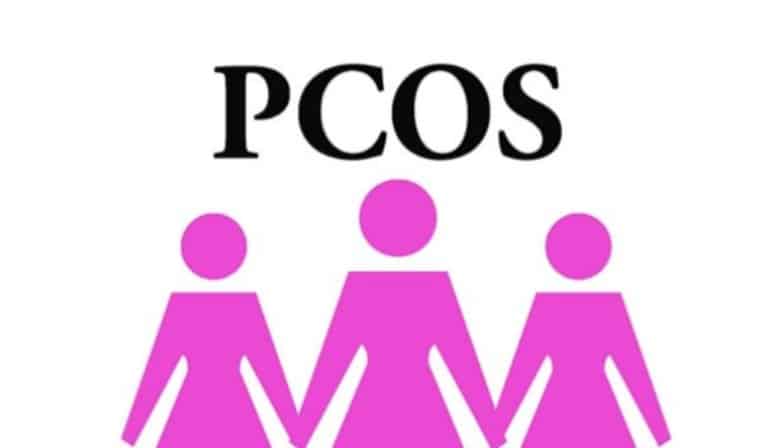Polycystic Ovary Syndrome is a health condition that affects about 1 in 5 women in the world, it is also called as PCOS. It affects levels of the sex hormones estrogen and progesterone are out of balance. This will lead to the growth of ovarian cysts. Polycystic ovarian syndrome can affect fertility, cardiac function, woman’s menstrual cycle, and appearance.
What causes PCOS?
The cause of the polycystic ovarian syndrome is not fully understood, but genetics is the main factor. Polycystic ovarian syndrome seems to run in families, so your chance of having it is higher if other women in your family have it or have irregular periods or diabetes. Polycystic ovarian syndrome can be passed down from either your mother’s or father’s side.
What are the symptoms?
- Acne
- Thinning hair on the scalp
- Irregular periods
- Weight gain and trouble losing weight
- Fertility problems
- Depression.
The following is a healthy polycystic ovarian syndrome food list that can be included in the daily diet in order to manage the polycystic ovarian disease in a more effective manner.
Green Leafy Vegetables
The benefits of eating fruits and vegetables to lose weight are well known, but it also helps to control Polycystic Ovary Syndrome naturally. Leafy vegetables have maximum nutrients per calories compared to other foods and also rich in calcium, iron, potassium, magnesium along with vitamins K, C, and E and most importantly essential B vitamins which play an essential role in managing the symptoms of the Polycystic ovarian syndrome.
Coloured Vegetables
Brightly colored vegetables not only makes for an appetizing salad but also helps to control polycystic ovarian syndrome and must be included in the polycystic ovarian syndrome diet plan. Colorful vegetables are loaded with powerful antioxidants that help to neutralize the harmful effects of oxidative stress in women suffering from the polycystic ovarian syndrome.
Some of the healthiest colored vegetables include red and yellow bell peppers, sweet potatoes, tomatoes, carrots, eggplant, etc.
Fruits
This is the next set of healthy foods that must be included in polycystic ovarian syndrome diet recipes. Although most women suffering from polycystic ovarian syndrome are reluctant to include fruits in their diet because of the fructose content that causes a sudden spike in blood sugar levels and consequently insulin levels, fruits are really rich in phytonutrients, vitamins, minerals, and fibers so it should not be avoided entirely.
Healthy Fats
Not all fats are unhealthy and also harmful for women suffering from the polycystic ovarian syndrome. Healthy fats and essential fatty acids are indispensable for maintaining the cells and removing toxins from the body as well as promoting hormonal balance and weight management. Healthy fats also hold an important place in polycystic ovarian syndrome fertility diet. Healthy fats are found in seeds, nuts, avocado, olive oil and oily fishes like tuna and salmon.
Organic Meat
Because weight gain is a major issue related to polycystic ovarian syndrome, it is an essential to include lean proteins in a polycystic ovarian syndrome weight loss diet in order to control body weight.
Meat is one of the powerful natural sources of protein. But you must opt for organic lean cuts of meat that contain fewer hormones and also pesticides and are not genetically modified.
Dairy Products
Although dairy products and milk are an essential part of a balanced diet chart, they can be harmful in case of polycystic ovarian syndrome. Therefore, this healthy food also comes under the list of foods to avoid with polycystic ovarian syndrome.
Consumption of milk can increase testosterone levels and a particular type of protein in milk also limits regular processing of testosterone in the body which causes the testosterone levels to keep rising without any barrier and it only makes the polycystic ovarian syndrome symptoms worse. Therefore, it is best to avoid milk, cheese, yogurt, butter and other milk products as much as possible.
Complete diet plan for PCOS
Breakfast
- 1 boiled egg
- 1 glass skimmed milk
- 1 plate vegetable upma or oats daliya
Snack
- 1 medium sized mixed fruit platter.
- 1 small serving of carrot sticks.
Lunch
- 1 large glass of buttermilk
- 1 cup raw vegetable salad
- 2 medium size chapatti
- 1 cup dal/pulse
- 1 cup vegetable
Snack
- Yogurt berry parfait
- 1 peanut butter sandwich.
Dinner
- Baked salmon with mixed veggies
- 1 small serving of tossed salad.
- Same as Lunch
So, now that you have a clear idea about the polycystic ovarian syndrome foods and also diet plan to eat which are to avoid for promoting effective polycystic ovarian syndrome management and controlling weight gain issues.

